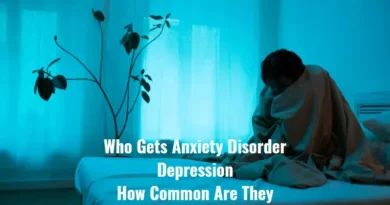Why are Personality Disorders Stigmatized? An Analysis
Personality disorders are stigmatized due to a combination of factors, including public misunderstanding, negative stereotypes, diagnostic controversies, and cultural biases. The general public often lacks awareness about these disorders, leading to perceptions that individuals are intentionally difficult rather than experiencing a mental health condition.
Negative labels such as “difficult” or “attention-seeking” further perpetuate stigma. Inconsistent diagnostic practices and debates within the mental health community contribute to confusion and skepticism about the validity of these disorders. Additionally, cultural norms and societal expectations can lead to harsh judgments of behaviors that deviate from accepted standards, resulting in further marginalization of affected individuals.
Addressing this stigma requires public education, empathetic diagnostic practices, and a cultural shift toward accepting mental health conditions as legitimate medical issues deserving of compassion and appropriate treatment.
Takeaways
| Details |
|---|
| This image is from pexels.com. |
| Public understanding of personality disorders is low, leading to fear and misunderstanding compared to conditions like depression or anxiety. |
| Misconception that challenging behaviors are a choice rather than symptoms of mental illness. |
| Sensationalized depictions in movies and TV reinforce negative stereotypes, portraying individuals as dangerous or unpredictable. |
| The term “personality disorder” can feel judgmental, implying something inherently wrong with the person. |
| Unconscious biases among healthcare professionals can lead to dismissive or inadequate treatment. |
| Fear of stigma discourages diagnosis and treatment, delaying recovery. |
| Stigma results in social isolation and discrimination, affecting relationships and employment. |
| Personality disorders are treatable, and addressing stigma can encourage individuals to seek help, improving their quality of life. |
Definition of Personality Disorders

To begin, it is essential to understand what personality disorders are. Personality disorders are a set of mental health issues characterized by enduring patterns of thoughts, feelings, and behaviors that deviate from cultural expectations. These patterns are pervasive and inflexible, causing significant discomfort or limitation in social, work-related, or other areas of functioning.
Prevalence of Personality Disorders
According to research, approximately 10% of the population is affected by a personality disorder at some point. However, this number might be even higher due to increasing awareness, better diagnosis methods, and reduced stigma surrounding mental health.
Misconceptions and Stigma
One of the primary reasons for the stigmatization of personality disorders is the prevalence of misconceptions and stereotypes. Society often associates mental illnesses with unpredictability, danger, and violence. This misrepresentation in media and popular culture perpetuates the stigma and creates an environment of fear and judgment.
Origins of Stigmatization
Several factors contribute to the stigmatization of personality disorders. Historical beliefs, cultural norms, and the lack of understanding about mental health contribute to negative attitudes towards individuals with these disorders. Additionally, the fear of the unknown and the discomfort of addressing mental health issues perpetuate the stigma.
Impact of Stigma on Individuals
Stigma has profound effects on individuals living with personality disorders. It leads to feelings of shame, guilt, and isolation. People with personality disorders may be reluctant to seek help due to the fear of judgment and rejection. This can delay diagnosis and appropriate treatment, exacerbating the symptoms and impairing their quality of life.
Impact of Stigma on Society
The stigma surrounding personality disorders also has broader societal implications. It hinders public awareness and understanding, making implementing effective mental health policies and support systems difficult. Furthermore, the discrimination and marginalization experienced by individuals with personality disorders contribute to social inequalities and prevent them from fully participating in society.
Cultural Factors Influencing Stigma
The stigma surrounding personality disorders can vary across cultures. Cultural beliefs, values, and attitudes toward mental health significantly influence the perception and treatment of individuals with these disorders. Understanding and challenging cultural stigma are crucial for promoting inclusivity and supporting affected individuals appropriately.
Media Portrayal of Personality Disorders

The media significantly shapes public opinion and perpetuates stereotypes about mental illnesses, including personality disorders. Movies, TV shows, and news articles often sensationalize these conditions, focusing on the most extreme and rare cases. This distorted portrayal reinforces negative stereotypes and adds to the stigmatization.
Challenging Stigma
Challenging the stigma associated with personality disorders requires collective efforts. This involves raising awareness, promoting understanding, and advocating for the rights and welfare of individuals with these conditions. We can reduce fear and judgment by dispelling misconceptions and providing accurate information, fostering a more compassionate and supportive society.
Therapy and Treatment Options
Therapy and treatment options play a crucial role in managing personality disorders. Therapies, such as dialectical behavior therapy (DBT), cognitive-behavioral therapy (CBT), mentalization-based treatment (MBT), schema-focused therapy (SFT), transference-focused psychotherapy (TFP), and systems training for emotional predictability and problem-solving (STEPPS), are the latest treatment option. These help individuals develop healthier coping mechanisms and improve their overall well-being. In certain situations, physicians may recommend medication to alleviate specific symptoms.
Promoting Understanding

Education is key to promoting understanding and empathy towards individuals with personality disorders. We can challenge stereotypes and foster a more compassionate society by providing accurate information about these conditions in schools, workplaces, and communities. Promoting open discussions about mental health can lessen the fear and isolation associated with these disorders.
A. The Role of Education
Educational institutions are vital in combating stigma and promoting mental health awareness. By integrating mental health education into curricula, schools can provide students with the understanding and abilities to understand and support individuals with personality disorders. Creating safe spaces for discussion and providing access to mental health resources are essential steps in this process.
B. Advocacy and Support
Lastly, advocacy and support significantly reduce stigma and enhance the well-being of individuals with personality disorders. Support groups, helplines, and online communities provide platforms for individuals to share their experiences, find support, and challenge the prevailing stigma. Collaborating with mental health organizations and advocating for policy changes can create a more inclusive society.
FAQ
Can personality disorders be cured?
It is impossible to cure personality disorders entirely, but with appropriate therapy and support, people can learn to handle their symptoms and live fulfilling lives.
Are personality disorders genetic?
Evidence suggests that personality disorders can have a genetic aspect, but environmental factors also have a role to play a significant role in their development.
Can personality disorders affect relationships?
Yes, personality disorders can significantly impact relationships due to difficulties in interpersonal functioning. However, individuals can work towards healthier, more fulfilling relationships with therapy and improved coping skills.
Are all personality disorders the same?
No, there are different types of personality disorders, each with unique characteristics and symptoms. It’s important to seek professional help for a reliable diagnosis.
How can I support someone with a personality disorder?
Supporting someone with a personality disorder involves listening without judgment, educating yourself about their condition, and encouraging them to seek professional help. Being patient, understanding, and offering support can make a positive difference in their lives.
What is Stigma in the context of personality disorders?
Stigma, in this context, refers to the societal process of devaluing and discrediting individuals who have been diagnosed with personality disorders. It involves the development of negative attitudes, stereotypes, and discriminatory behaviors that label these individuals as “other” or dangerous. This phenomenon arises from misinformation, cultural myths, and a general lack of understanding about the nature of personality disorders, often leading to social isolation and barriers to seeking help.
What is Public Stigma regarding personality disorders?
Public Stigma encompasses the negative beliefs and attitudes held by society at large about personality disorders. This form of Stigma is manifested through media portrayals, community prejudices, and cultural narratives that often depict those with personality disorders as unpredictable or untreatable. Such widespread misconceptions contribute to discrimination and can influence policies and resource allocation in mental health care, reinforcing the cycle of marginalization.
What is Self-Stigma in relation to personality disorders?
Self-stigma occurs when individuals with personality disorders internalize the negative stereotypes and prejudices prevalent in society. As a result, they may experience diminished self-esteem, shame, and a sense of hopelessness about their condition. This internalized Stigma not only impacts their self-identity but also discourages them from seeking support or treatment, thereby exacerbating their challenges and contributing to a cycle of social and psychological isolation.
What is Labeling Theory in the context of personality disorder stigma?
Labeling Theory suggests that the diagnostic process itself can lead to stigmatization by attaching a lasting label to an individual. Once a personality disorder is identified, the label often becomes a dominant identity marker, influencing how both the individual and society perceive and interact with them. This process reinforces stereotypes and can lead to discrimination, as the label overshadows the person’s unique qualities and potential for change.
What is Diagnostic Overshadowing in relation to personality disorders?
Diagnostic Overshadowing refers to a phenomenon where the diagnosis of a personality disorder leads clinicians and others to overlook or misattribute other significant symptoms or conditions. By focusing solely on the personality disorder, additional mental health issues may be ignored or underestimated, which can result in inadequate treatment. This singular focus further perpetuates Stigma by simplifying a complex clinical picture into a single, often negatively perceived, label.
What is Attribution Theory, and how does it relate to personality disorder stigma?
Attribution Theory examines how people explain the causes of behavior and mental health conditions, often leading to oversimplified explanations. In the case of personality disorders, this theory highlights the tendency to attribute these conditions to personal failings or inherent character flaws rather than considering a multifaceted interplay of genetic, environmental, and neurobiological factors. Such attributions foster blame and moral judgment, reinforcing stigmatizing attitudes and undermining the pursuit of compassionate treatment.
What is Implicit Bias in clinical settings for personality disorders?
Implicit bias refers to the subconscious attitudes and stereotypes that can influence the behavior and decision-making of clinicians and healthcare professionals. In the assessment and treatment of personality disorders, these biases may lead to premature or skewed diagnoses, differential treatment strategies, and an overall lack of empathy. This unintentional bias affects clinical outcomes and contributes to the perpetuation of Stigma within the healthcare system.
What is Structural Discrimination in the context of personality disorders?
Structural discrimination involves the ingrained policies, practices, and cultural norms within institutions—such as healthcare, employment, and education—that systematically disadvantage individuals with personality disorders. This form of discrimination goes beyond individual prejudice and is embedded in the very framework of social systems, resulting in reduced access to quality care, employment opportunities, and social support, thereby reinforcing the broader stigmatization of these disorders.
What is Clinical Bias in the assessment of personality disorders?
Clinical bias in the context of personality disorders refers to the influence of preconceptions and subjective judgments on diagnostic practices. Healthcare providers may unconsciously allow stereotypes and personal beliefs to affect their interpretation of symptoms, leading to overdiagnosis, misdiagnosis, or inappropriate treatment planning. This bias can inadvertently reinforce stigmatizing labels, thereby hindering accurate diagnosis and effective care.
What is Therapeutic Pessimism in treating personality disorders?
Therapeutic pessimism is the outlook among some mental health professionals that personality disorders are inherently resistant to treatment. This belief can result in reduced efforts toward intervention, less investment in innovative therapeutic approaches, and a general reluctance to engage deeply with affected individuals. The resulting low expectations hinder recovery and reinforce a societal narrative that these conditions are intractable and untreatable.
What is Pathologization in the context of personality disorder stigma?
Pathologization refers to the tendency to view normal variations in personality or behavior through a strictly medical lens, labeling them as signs of mental disorders. This process can result in over-medicalizing human diversity, where behaviors deviating from cultural norms are viewed as pathological. The narrow focus on disorder rather than human complexity contributes to Stigma by reducing individuals to their diagnosis rather than recognizing their full range of traits and experiences.
What is Comorbidity, and how does it influence the Stigma of personality disorders?
Comorbidity describes the co-occurrence of personality disorders with other mental health conditions. This overlapping of diagnoses can complicate the clinical picture and may lead to heightened Stigma, as the presence of multiple conditions is often interpreted as an indication of a more severe or untreatable problem. The challenge of addressing comorbid conditions may reinforce negative stereotypes about the complexity and intractability of personality disorders, further marginalizing affected individuals.
What is Intersectionality in understanding personality disorder stigma?
Intersectionality is a framework that considers how overlapping social identities—such as race, gender, socioeconomic status, and mental health status—interact to shape an individual’s experience of discrimination and Stigma. For those with personality disorders, these intersecting identities can amplify the negative effects of Stigma, as societal biases in multiple areas compound the challenges they face. Recognizing intersectionality is essential for developing more nuanced, effective strategies to reduce Stigma and promote inclusive support systems.
What is Medicalization in the context of personality disorders?
Medicalization is the process by which certain behaviors or personality traits are defined as medical problems requiring intervention. In the case of personality disorders, this approach can help legitimize the need for treatment; however, it also risks reducing complex human experiences to a set of symptoms and diagnostic criteria. This reductionist view can reinforce Stigma by implying that individuals are fundamentally “defective” or abnormal rather than acknowledging the broader context of their lives and experiences.
What is Stereotype Formation in the context of personality disorder stigma?
Stereotype Formation involves the development of fixed, oversimplified beliefs about individuals with personality disorders, often based on limited or exaggerated portrayals. These stereotypes can take root in both public discourse and clinical practice, leading to an automatic association of personality disorders with negative traits such as unpredictability or hostility. The resulting generalizations not only contribute to public fear and misunderstanding but also hinder efforts to treat individuals with empathy and respect.
What is the stigma associated with antisocial personality disorder?
Antisocial personality disorder stigma involves negative societal perceptions that label individuals as inherently dangerous, manipulative, or morally deficient. This stigma stems from misunderstandings of the disorder’s clinical features, often exacerbated by sensationalized media portrayals, and can lead to social exclusion, challenges in accessing proper mental health care, and a reluctance to seek treatment.
Are personality disorders real?
Personality disorders are indeed real and recognized clinical conditions characterized by enduring patterns of thought, behavior, and inner experience that significantly deviate from cultural expectations. These disorders, which include diagnoses such as borderline, antisocial, and narcissistic personality disorders, are documented in standardized diagnostic manuals and have measurable impacts on interpersonal functioning and overall well-being.
What does the term ‘controversial diagnosis’ mean in mental health?
A controversial diagnosis in mental health refers to a condition whose validity, diagnostic criteria, or treatment approaches are debated within the clinical and academic communities. Such controversies arise due to factors like overlapping symptoms with other disorders, cultural biases, evolving research findings, and differing theoretical perspectives, leading some experts to question the reliability or utility of the diagnosis.
What are the common stereotypes associated with personality disorders?
Common stereotypes about personality disorders include the belief that individuals are inherently manipulative, unpredictable, or incapable of change. These oversimplified views reduce complex conditions to a set of negative traits, fueling public prejudice and discrimination. Such stereotypes hinder effective treatment by creating barriers to understanding and empathy between those affected and both the public and professionals.
What are some professional beliefs about borderline personality disorder?
Many professionals view borderline personality disorder as a multifaceted condition marked by emotional instability, impulsive behavior, and intense interpersonal difficulties. There is a growing recognition that while BPD presents significant treatment challenges, it also responds well to specialized therapies such as dialectical behavior therapy. However, some clinicians may still harbor biases that influence their attitudes toward its prognosis and treatment, contributing to ongoing stigma.
What is meant by the term ‘stigma personality type’?
The term “stigma personality type” can refer to the idea that certain personality characteristics or disorders are more likely to attract societal stigma due to deviations from normative behaviors. This concept underscores how cultural expectations shape perceptions, leading to heightened discrimination against individuals whose personality traits are viewed as abnormal or challenging to conventional social norms.
Why are personality disorders difficult to diagnose?
Diagnosing personality disorders is challenging because they involve enduring and pervasive patterns of behavior and thought that are deeply interwoven with an individual’s personality. The diagnostic process relies on subjective assessments and self-reports over long periods, and these disorders often overlap with other mental health conditions. Additionally, cultural factors and clinician biases can further complicate the assessment, making accurate diagnosis a nuanced task.
Why is borderline personality disorder stigmatized?
A borderline personality disorder is stigmatized largely due to its association with intense emotional volatility, impulsivity, and tumultuous relationships. Misconceptions and sensationalized portrayals in the media contribute to a narrative that individuals with BPD are unpredictable or manipulative. This stigmatization affects both personal relationships and professional settings, often resulting in barriers to appropriate treatment and social acceptance.
Why is BPD stigmatised?
BPD is stigmatised because its symptoms—such as rapid mood swings, fear of abandonment, and impulsive behaviors—are often misinterpreted as signs of deliberate dysfunction rather than manifestations of a complex mental health condition. This misinterpretation fosters negative attitudes and discrimination, creating obstacles for those affected to receive understanding and empathetic care and maintain positive interpersonal relationships.
Why is BPD so stigmatized?
BPD is so stigmatized due to a combination of factors, including its challenging symptom profile, the difficulty in managing intense emotional responses, and the dramatic portrayals often seen in popular media. These factors contribute to a persistent misconception that individuals with BPD are beyond help or are responsible for their behavior, which not only undermines the potential for recovery but also reinforces societal prejudices.
What is personality disorder stigma?
Personality disorder stigma refers to the widespread negative attitudes, stereotypes, and discriminatory behaviors directed toward individuals diagnosed with personality disorders. This stigma manifests in various forms—from public perceptions to self-stigmatization—and impacts areas such as healthcare, employment, and personal relationships. It often results from a lack of understanding of the complexity of these disorders and is further reinforced by oversimplified media representations.









